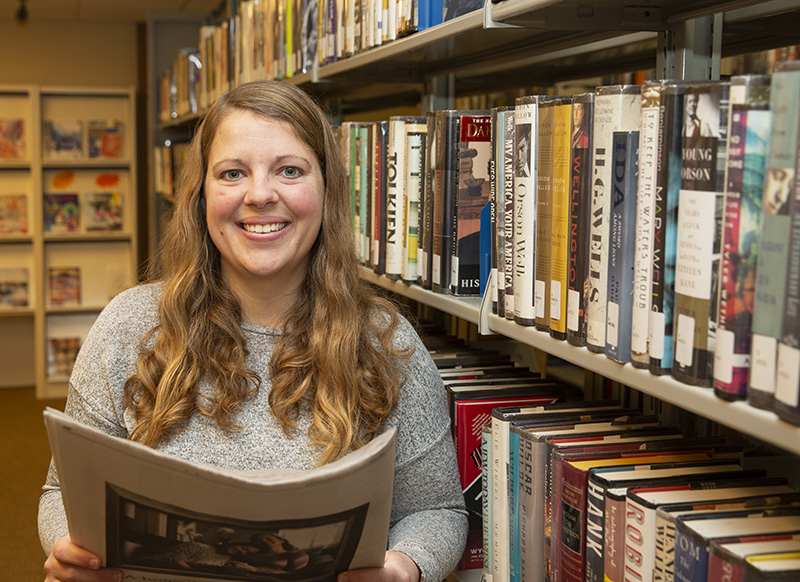Getting the story straight
Notre Dame and Elkhart Public Library present four-part series on misinformation
Misinformation is deception. The problem is far from new, but a researcher with the University of Notre Dame is taking a fresh look at the root causes in hopes of stopping its negative impact on society.
A four-part series in February at Elkhart Public Library will take a deep look at misinformation. Every Wednesday, “The Straight Story – Getting to the Bottom of Misinformation” will offer perspectives on how information is presented, consumed and shared in our community and around the world.

Each presentation and discussion will begin at 6:30 p.m. in the downtown location, 300 S. Second St. The events are free and open to everyone.
“We’ve always had misinformation in various forms – look at how the Spanish-American War started, for one,” says Pamela Bilo Thomas of Notre Dame’s Interdisciplinary Center for Network Science and Applications. “But with social media, it’s so much easier to find information that conforms to our personal worldview and to share.
“A lot of what we’re trying to do is to educate people to not fall for misinformation and then share it. Theories abound, including the censorship and regulation of social media. … Our research will hopefully lead to ways to stop its negative impact on our society.”
The series offers a mix of panel discussions and presentations. Local media representatives, elected officials and law enforcement will discuss the information challenges they face in their professions. Presentations will focus on manipulated communications through social media channels and for broader political struggles.
“We will look at misinformation from various perspectives, through various lenses,” says Thomas. “It’s been evident the last couple of years how much misinformation contributes to the well-being or dysfunction of our society. We’re trying to understand what is going on and how we can combat it.”
Also, she adds, “There’s not as much trust in the media as there used to be. We need to learn more about identifying misinformation, the mediums used to spread misinformation due to an agenda, and how traditional media can regain trust.”